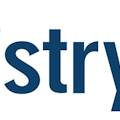Oral Cancer Foundation sponsors 14th Annual Oral Cancer Awareness Month in April 2013
March 21, 2013
5 min read
NEWPORT BEACH, Calif. / PRNewswire-USNewswire / — What has the greatest impact on survival rates of oral cancer? Radiation? Chemotherapy? Perhaps surgery? The truth is none of these; rather, it is the point in time at which the disease is discovered. As the National Cancer Institute's SEER data clearly show, early discovery of oral cancer affects survival outcomes and reduces treatment-related morbidity more than anything else. And no one is better positioned to make early detection a reality than the dental community. Unfortunately, two-thirds of newly diagnosed individuals are found when the disease is at stage three or four. The good news: it does not have to be this way.
To help draw attention to this situation, the Oral Cancer Foundation is sponsoring the 14th Annual Oral Cancer Awareness Month in April. The Foundation is encouraging dental practices across the United States and Canada to offer free oral cancer screenings for at least three hours one day during the month to people in their communities. Through this group collaboration, the Foundation hopes to see this disease brought to the attention of as many individuals as possible, and have the disease get the national media attention necessary to meaningfully raise public awareness. A public that understands the risk factors and early signs and symptoms of the disease are better prepared to recognize and self discover things that should take them to the doctor for further evaluation.RELATED |Oral cancer awareness: Do good in the world. Do good in your practice.RELATED |3 questions and answers about HPV vaccination you can share with your dental patients "The dental community needs to be the first line of defense against oral cancer," said Brian Hill. "Just performing 'opportunistic' five-minute oral cancer screenings of the existing patient population that visits a dental office every day could have a profound impact on our ability to discover the disease at earlier, even precancerous, stages. This could help us dramatically reduce the mortality and morbidity of this disease." A national screening effort is imperative. The incidence of oral cancer is increasing at an alarming rate due to a new viral etiology, human papillomavirus (HPV-16). For decades, the leading cause of oral cancer had been tobacco, and most of the disease's victims were older males who had used tobacco for several decades of their life. Today, however, young, nonsmoking individuals are the fastest growing segment of the oral cancer population. Doctors in the scientific and treatment communities are already using the word "epidemic" to describe the situation. Oral cancer is not a rare disease. Each hour of every day, one American dies of the disease, and four more Americans are newly diagnosed. This disease can be defeated, but only with an informed public supported by involved and dedicated professionals. Oral cancer has always existed outside the consciousness of much of the public, even though 42,000 Americans will be newly diagnosed this year alone. In the early stages of oral cancer's development, often there is no pain or any physical sign that is obvious to an individual. This makes it a very dangerous disease, and is also the reason it is crucial to have an annual oral cancer screening by a professional. Oral cancer is one of the few cancers that are on the rise in the United States. When found early, oral cancers have an 80% or better survival rate. Like other cancer screenings, such as those for cervical, skin, prostate, colon, and breast cancer, oral cancer screenings can be an effective means of finding cancer at its earliest and most easily treatable stage. Of all these screenings, the one for oral cancer is the least invasive and time-consuming, is painless and inexpensive, and it can be done as part of a regular dental hygiene check-up. Dental practices wishing to sign up to conduct an event, and people wishing to find a practice offering free screenings in their community, may do so here. The Foundation will provide participating practices with all the materials needed to conduct the screenings and to generate exposure for the event in their community. "Only with the involvement of a large network of participating professional offices and facilities will a reduction in deaths become a reality," said Brian Hill, founder and executive director of the Oral Cancer Foundation. "An informed public helps early discovery and increases survivability." The Oral Cancer Foundation is a big believer in the development of strategic partnerships. In April 2013, OCF will again join forces with both professional societies and private sector companies who are stakeholders in the fight against this disease. The American Dental Association, The Academy of General Dentistry, The American Academy of Oral Medicine, and The American Academy of Oral and Maxillofacial Surgery, form the core of the professional society sponsorship. The Foundation has also aligned with private sector entities Henry Schein Inc., LED Dental, DenMat Holdings, DentalEZ Group, and Bristol-Myers Squibb, who are asking their customer base to be active in this April's endeavor. In addition, the many treatment facilities with head and neck departments that participated in 2012's effort are expected to participate again in 2013.About the Oral Cancer Foundation The Oral Cancer Foundation, founded by oral cancer survivor Brian R. Hill, is a nonprofit 501(c)(3) public service charity that provides information, patient support, sponsorship of research, and advocacy related to this disease. Oral cancer is the largest group of those cancers that fall into the head and neck cancer category. Common names for it include such things as mouth cancer, tongue cancer, head and neck cancer, and throat cancer. It maintains a website, which receives millions of hits per month. Supporting the foundation's goals is a scientific advisory board composed of leading cancer authorities from varied medical and dental specialties, and from prominent educational, treatment, and research institutions in the United States.
About the Author
Sign up for our eNewsletters
Get the latest news and updates


